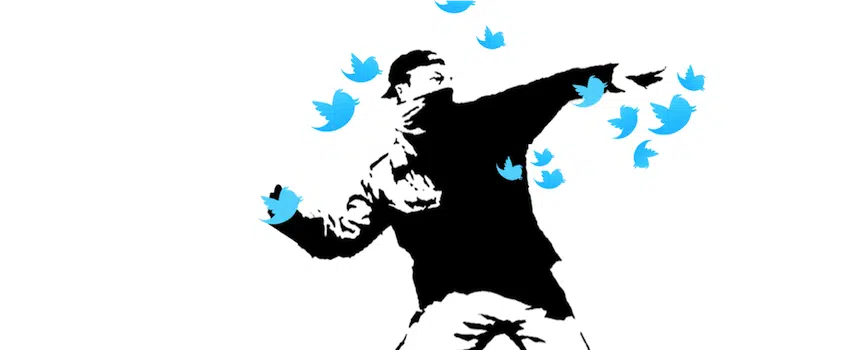Recently, the internet has been abuzz with a number of articles claiming that Twitter is on a slow, but certain spiral of death. Perhaps the most popular of these pre-obituaries was published last week in The Atlantic, which began by claiming dramatically that
The publishing platform that carried us into the mobile Internet age is receding. Its influence on publishing will remain, but the platform’s place in Internet culture is changing in a way that feels irreversible and echoes the tradition of AIM and pre-2005 blogging.
Touching. But here’s the boring truth — Twitter is not dead, and is unlikely to be for quite a while.
But Twitter is not Facebook
Essentially, four charges have been brought against Twitter, that “predict” its inevitable downfall. First, user growth is slowing: membership in the first quarter reached 255 million, with year-over-year growth decelerating to 25 percent from 30 percent in the previous period. But this was inevitable for two reasons — Twitter doesn’t connect people in the same way as Facebook does; moreover, as the base grows the percentage growth is bound to drop. Second, the stock has crashed by 50% since the IPO a few months ago. Again, the short term performance of a stock says nothing about a company’s long-term prospects.
Third, timeline views have dropped, which seems to indicate that people are less active on Twitter. This is a fundamentally short-sighted way of examining Twitter, since the platform is now larger (and more valuable) than just a place for people to interact — it is now a part of government communications, emergency rescues and news bulletins. Fourth, other mobile platforms such as Instagram and Snapchat growing faster. But this is an apples and oranges comparison — surely we don’t expect Twitter will one day be used by as many people as use Facebook?
The entire argument against this approach to analysing Twitter was beautifully demolished recently in Slate:
But Wall Street—along with everyone else who’s down on Twitter because it has “a growth problem”—is making a mistake by comparing it to Facebook. Twitter is not a social network. Not primarily, anyway. It’s better described as a social media platform, with the emphasis on “media platform.” And media platforms should not be judged by the same metrics as social networks.
Why Twitter Matters in Airline Marketing
While the counters given above should sufficiently alleviate any fears of Twitter’s demise, it is worth re-iterating why, today, more than ever before Twitter matters for Airline Marketing and should continue to be a vital cog in the machine:
-
Its inherent, real-time nature makes it indispensable for customer service. Not only does it allow direct one-on-one interaction more easily that Facebook does, it is also more suited for getting instant updates. Its necessary brevity (140 chars) is an added advantage that reduces the pressure on customer-service teams since they have to read shorter messages than on Facebook.
-
News not only breaks on Twitter, but it also depends on Twitter — which makes it even more imperative to have a Twitter customer-service team in place when something newsworthy happens. This paradigm has now entered the mainstream, with an increasing number of television news channels prominently featuring tweets. (See the Asiana Airlines Crash case-study for example.)
-
Crisis communications depend on the speed of Twitter, where even Facebook is sometimes seen as slow. The fluid nature of Twitter makes it more useful for delivering a stream of information in real-time. Moreover, during crises, it’s especially important to have a Twitter response strategy in place in order to provide a source for reliable information — because during these times not only do you need to update people, you need to ensure that others aren’t spreading incorrect information.
-
Mobile ads are being seen as increasingly useful by brands, and Twitter offers some of the best returns on investment. Its evolving mobile ad product is widely seen as perhaps the most effective of all mobile advertising products.
What do you think? What do you think about the future of Twitter? What’s your Twitter strategy? Talk to us in the comments below, or tweet to us @simpliflying.
